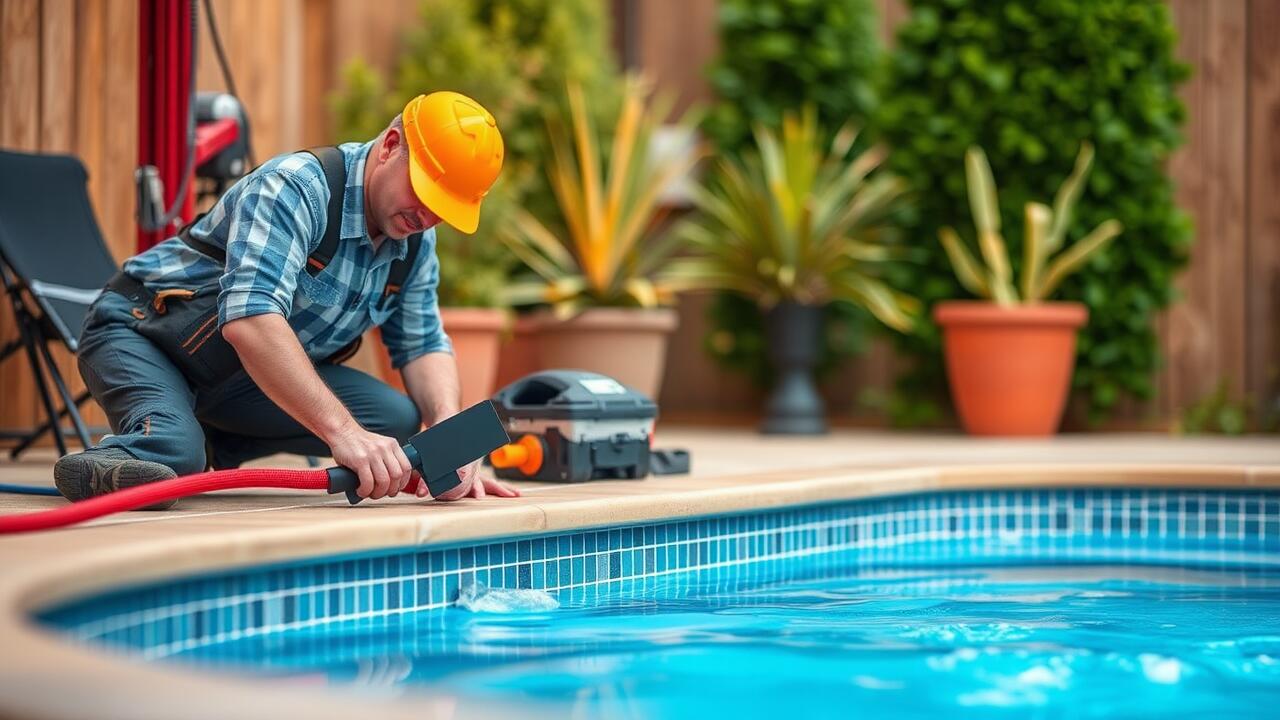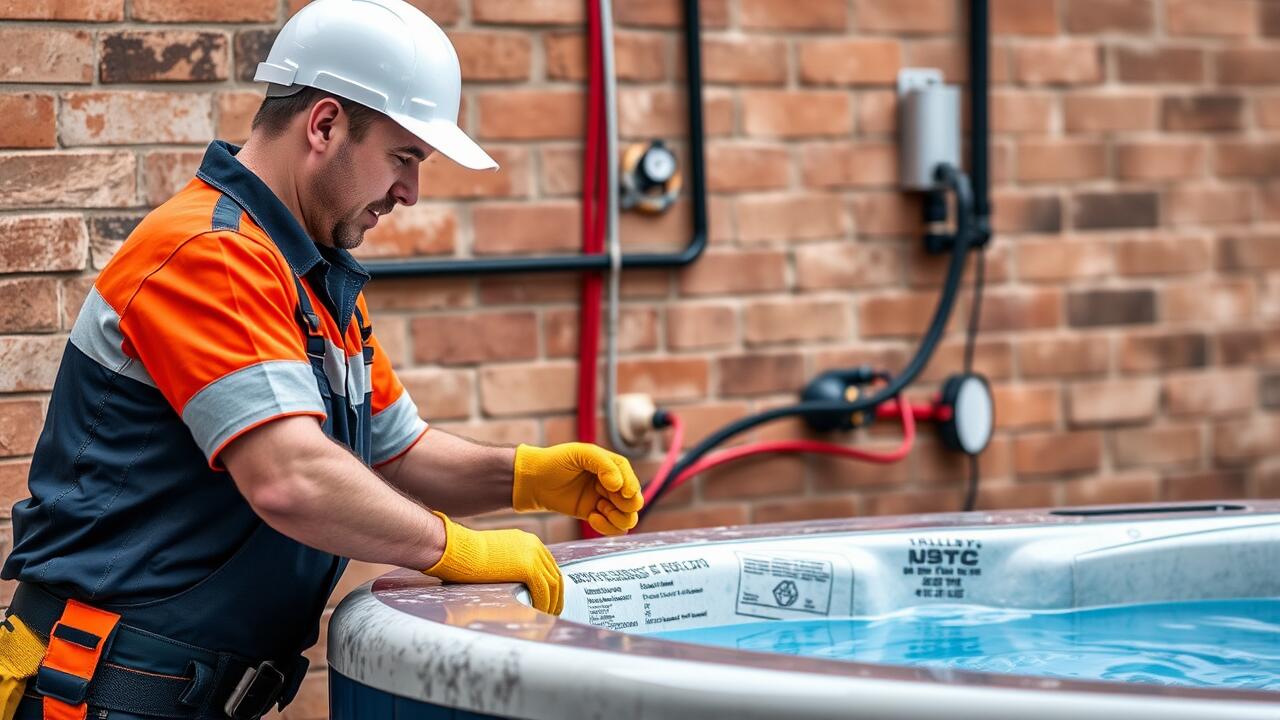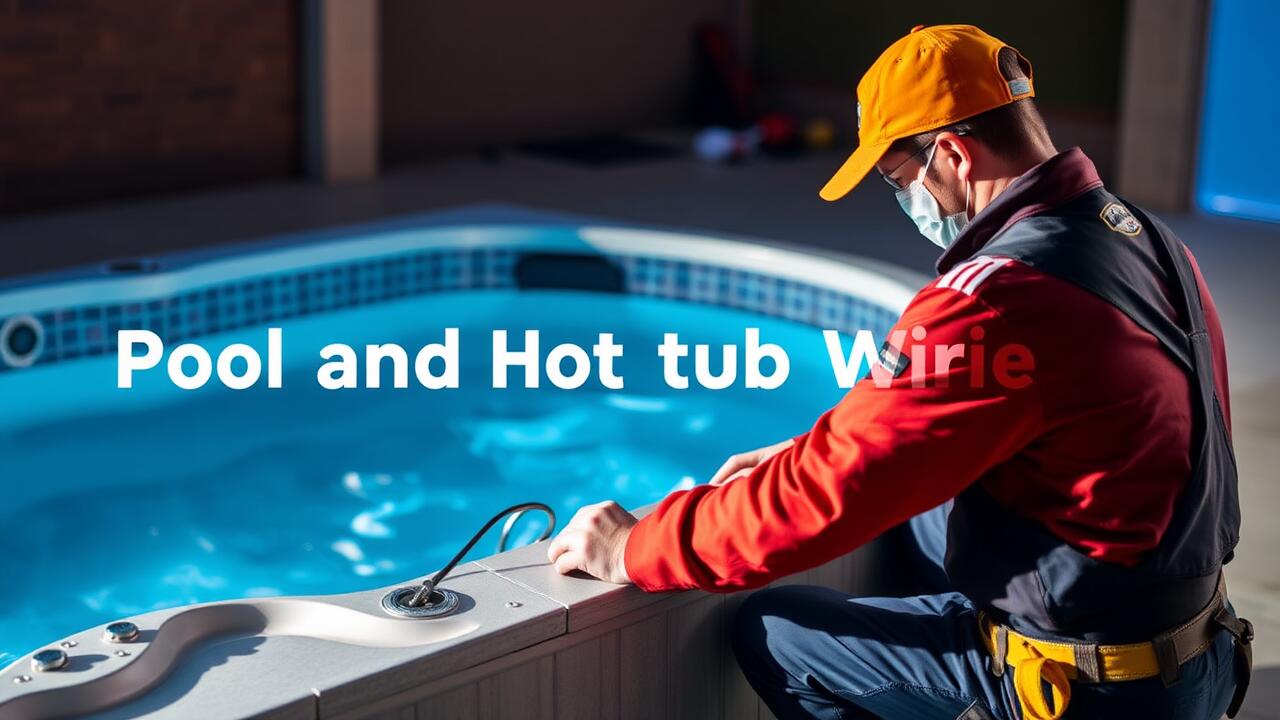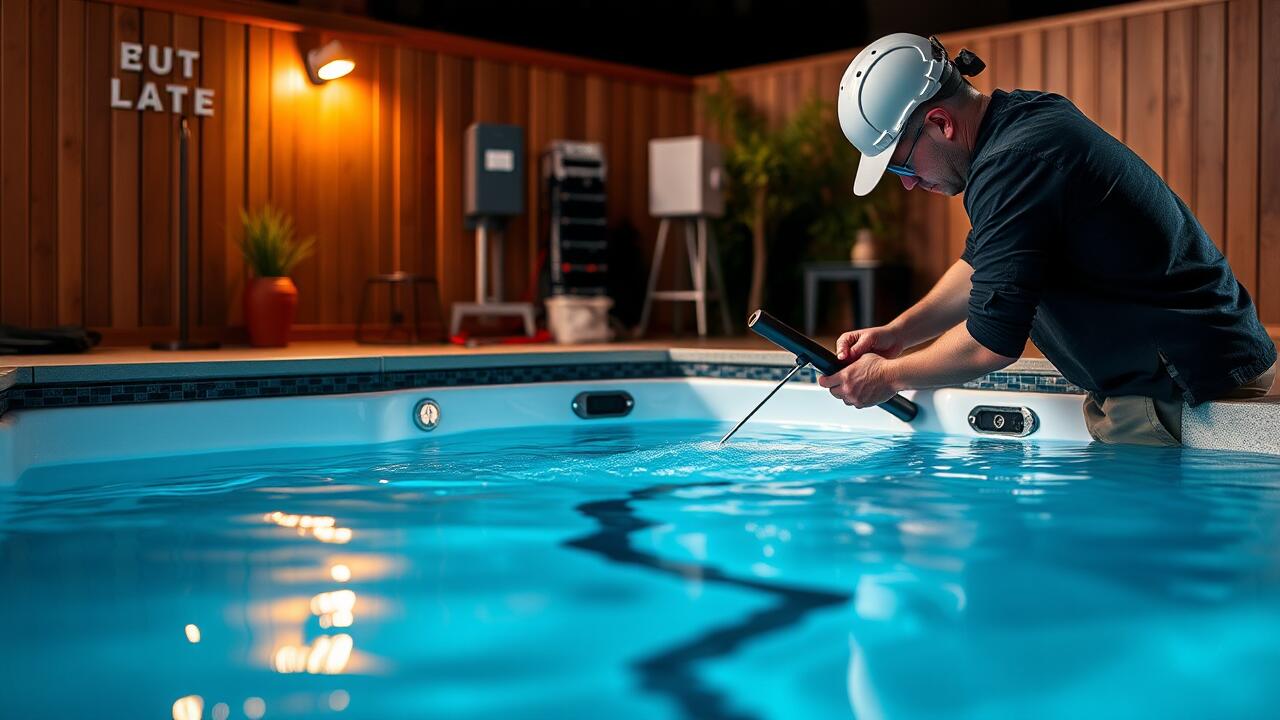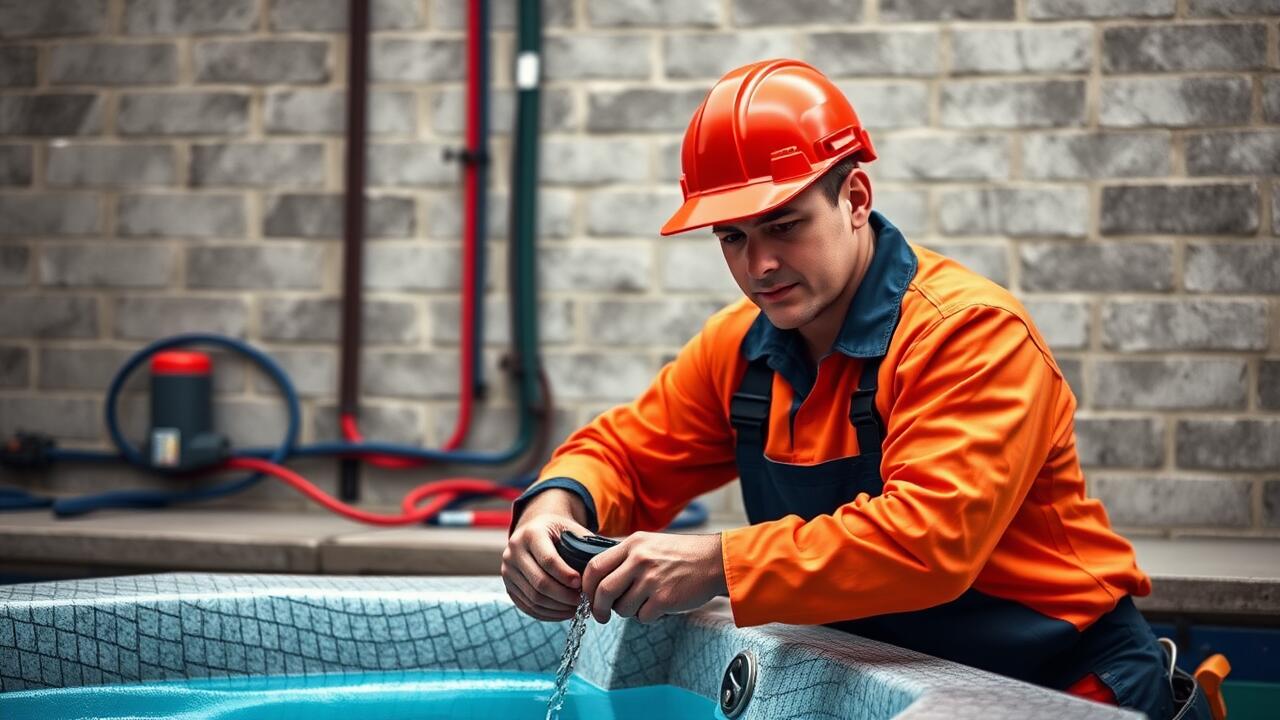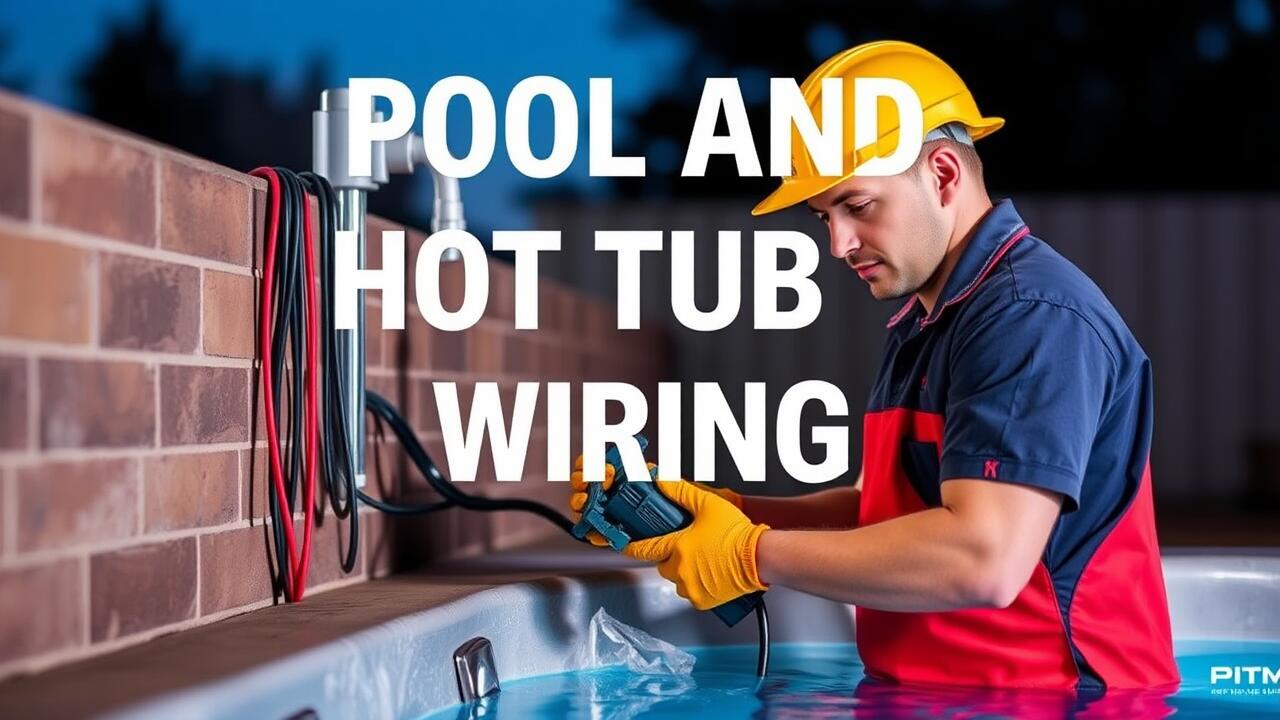
Effects of Incorrect Voltage on Hot Tubs
Incorrect voltage levels can lead to significant issues for hot tubs, affecting both performance and safety. A hot tub designed for 240 volts may not operate efficiently on a lower voltage. This can cause the heating element to underperform, resulting in lukewarm water instead of the desired temperature. Additionally, low voltage can cause the hot tub’s pump to struggle, leading to delayed water circulation and potential strain on the system.
In Sharpstown, Houston Pool and Hot Tub Wiring, the implications of improper voltage extend beyond reduced functionality. Excessive voltage can lead to overheating, which poses a risk of damage to essential components such as the control panel and motor. Over time, this can shorten the lifespan of the hot tub and lead to costly repairs. Ensuring the correct voltage is supplied maintains not only the efficiency of the system but also the safety of its use.
Potential Damage and Performance Issues
Using incorrect voltage for hot tubs can lead to a range of potential damage and performance issues. When a hot tub receives too low a voltage, the heating element may struggle to operate effectively, resulting in inadequate water heating and overall poor performance. Higher voltages can cause excessive current flow, overheating components, and ultimately lead to premature failure of vital parts like the pump and control systems. These issues not only diminish the user experience but can also result in costly repairs down the line.
In areas like Sharpstown, Houston, where pool and hot tub wiring is essential for safe operation, ensuring proper voltage is critical. A poorly wired hot tub can pose safety hazards, including electrical shocks or even fires in extreme cases. Regular inspections and maintenance can help identify wiring issues before they escalate into serious problems, and working with qualified professionals can minimize risks. Ensuring that your installation complies with local codes and standards protects both your investment and the safety of users.
Choosing the Right Electrician for Installation
Selecting the right electrician for hot tub installation is crucial to ensure a safe and efficient setup. Look for professionals with experience specifically in pool and hot tub wiring. Familiarity with local codes and regulations is essential, as this knowledge helps avoid potential legal issues and enhances safety.
When considering electricians, check for proper licensing and insurance. This not only protects you but also guarantees that the work will meet industry standards. A reputable electrician will have references and positive reviews from previous clients. For reliable service in areas like Clear Lake City, Houston Pool and Hot Tub Wiring can connect you with qualified professionals dedicated to your project's success.
Qualities to Look for in a Professional
When selecting an electrician for your hot tub installation, start by looking for someone with relevant certifications and licenses. A qualified electrician should have completed the necessary training and be knowledgeable about local codes and regulations. Experience specifically in hot tub and pool wiring is crucial. Professionals familiar with installations in Clear Lake City, Houston Pool and Hot Tub Wiring are better equipped to anticipate potential challenges unique to the region.
Another important quality is strong customer reviews and referrals. Prospective clients should seek out testimonials that reflect the electrician's reliability and communication skills. An electrician who offers clear explanations and maintains transparency throughout the process facilitates a smoother installation. Additionally, it's wise to verify insurance coverage. This protects both the homeowner and the electrician in case of any unforeseen issues during the project.
Safety Precautions for Hot Tub Wiring
When dealing with hot tub wiring, safety precautions are paramount. Always ensure the power source is shut off before commencing any electrical work. Using the correct gauge wire is essential to minimize the risk of overheating and potential fire hazards. Avoid using extension cords, as they can lead to voltage drop and may not support the hot tub’s power requirements. Installing a dedicated circuit is advisable to lock in long-term safety and efficiency for your setup.
Hiring a qualified electrician for installations or repairs can significantly reduce risks. Professionals experienced with Clear Lake City, Houston Pool and Hot Tub Wiring are familiar with local codes and best practices. It is important to verify credentials and ask for references to ensure you select a reliable expert. Regular inspections of electrical systems can also help identify potential issues before they become serious, offering peace of mind for hot tub owners.
Essential Guidelines for Electrical Safety
When installing a hot tub, safety is paramount. Always ensure that the electrical connections comply with local codes and regulations. Use GFCI (Ground Fault Circuit Interrupter) protection to guard against electrical shocks. This device detects imbalances in electrical current and cuts off power if needed. Adequate grounding is necessary to prevent dangerous voltage levels from affecting users. For those in the region, referring to experienced professionals familiar with Kingwood, Houston Pool and Hot Tub Wiring can help ensure compliance with local requirements.
Proper installation also involves using the right materials. Make sure to utilize outdoor-rated wiring and components specifically designed for wet environments. Sealing connections and ensuring that cables are securely fastened will reduce the risk of water exposure over time. Regular inspections and maintenance of the electrical system should not be overlooked. Taking these precautions will not only enhance the performance of your hot tub but also prioritize the safety of everyone using it.
FAQS
What is the standard voltage requirement for most hot tubs?
Most hot tubs typically require either 120 volts or 240 volts, depending on their size and features. Always refer to the manufacturer’s specifications for the correct voltage.
What can happen if my hot tub is connected to the wrong voltage?
Connecting your hot tub to the incorrect voltage can lead to potential damage to the unit, including overheating, malfunctioning components, and even fire hazards.
How do I choose the right electrician for hot tub installation?
Look for an electrician who is licensed, insured, and has experience with hot tub installations. Check their references and read reviews to ensure they have a good track record.
What safety precautions should be taken during hot tub wiring?
Always follow local electrical codes, use the proper materials, ensure proper grounding, and consider installing a GFCI (Ground Fault Circuit Interrupter) to protect against electrical shock.
Why is it important to adhere to electrical safety guidelines when installing a hot tub?
Adhering to electrical safety guidelines helps prevent electrical hazards, ensures the proper functioning of the hot tub, and keeps users safe from potential injuries related to electrical malfunctions.
